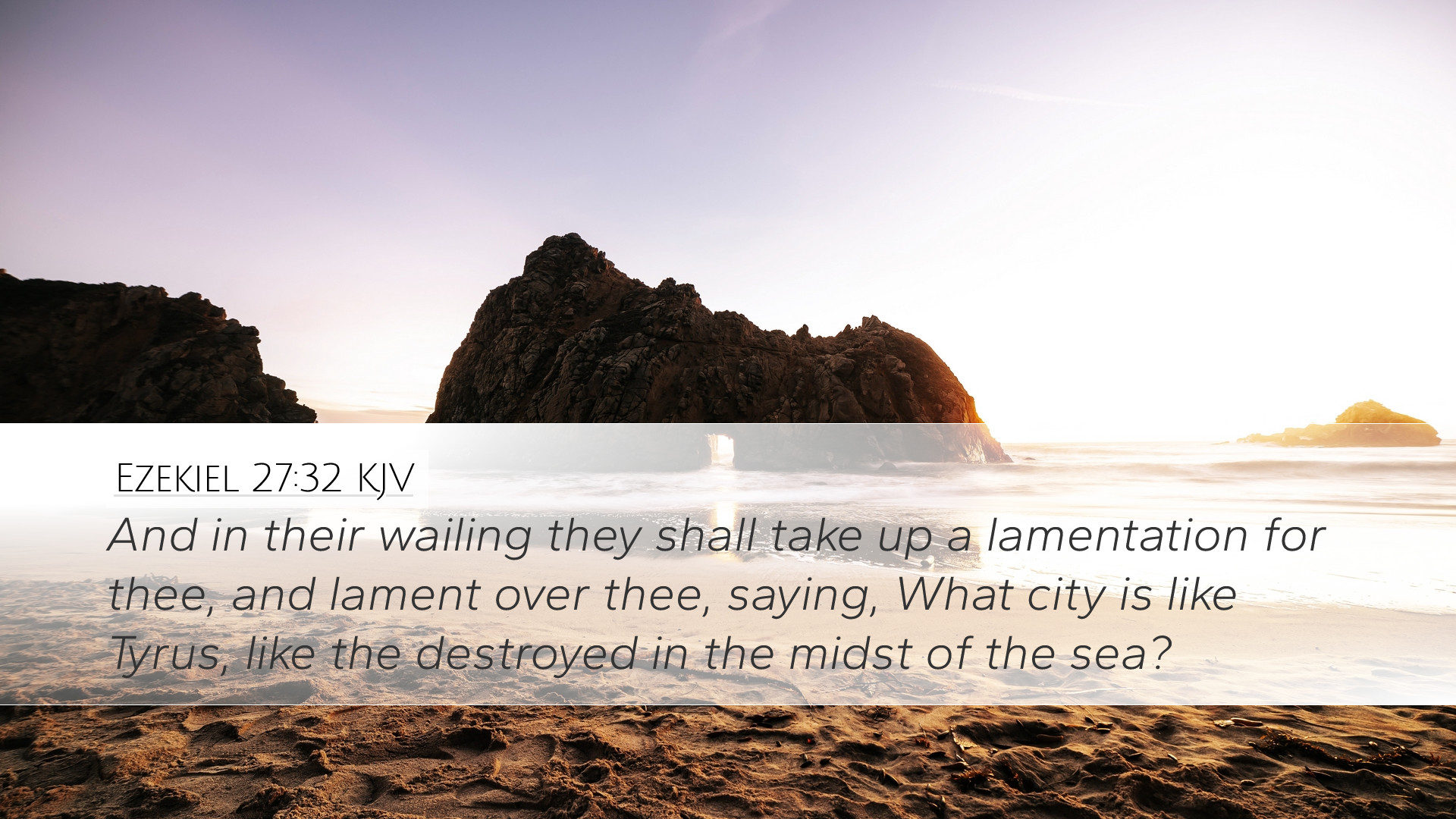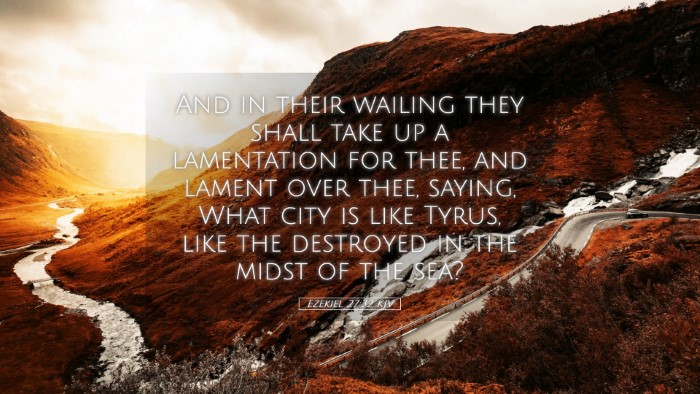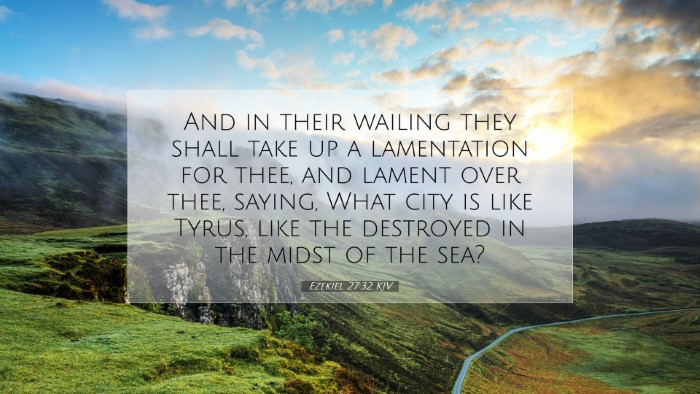Ezekiel 27:32 Commentary
Ezekiel 27:32 states: “And in their wailing they shall take up a lamentation for thee, and lament over thee, saying, What city is like Tyrus, like the destroyed in the midst of the sea?” This verse occurs within a larger context in which the prophet Ezekiel mourns over the fall of Tyre, a city known for its wealth, commerce, and formidable maritime power.
Contextual Overview
The chapter primarily focuses on the trading and commercial prowess of Tyre, drawing stark contrasts to its subsequent destruction. The lamentation serves as a sobering reflection on the transition from prosperity to desolation. In this commentary, we explore various perspectives from notable public domain scholars.
Insights from Public Domain Commentaries
Matthew Henry's Commentary
Introduction to the Fall of Tyre: Matthew Henry presents Tyre as the epitome of commercial success yet ultimately succumbing to divine judgment. He notes that the lamentation signifies the shock and sorrow of those who relied on Tyre’s wealth and trade. The prophet creates a powerful image of the city as a once-glorified entity now brought low.
The Theatrical Nature of the Lament: Henry emphasizes the theatrical aspects of the lamentation. The imagery evokes feelings of collective mourning among the merchants and sailors who long depended on Tyre's thriving economy. They mourn not just the city but the end of an era, indicating that the loss of Tyre represents the loss of economic stability across the maritime trade networks.
Albert Barnes' Notes on the Bible
Analyzing the Lamentation: Albert Barnes elaborates on the phrase “What city is like Tyrus?” He interprets this as an acknowledgment of Tyre’s unparalleled greatness, noting that its demise would resonate far and wide, striking an emotional chord with those who had shared in its prosperity.
Symbolism in Destruction: Barnes also discusses how the lamentation symbolizes God's sovereign authority over nations. The destruction of Tyre serves as a reminder that no political power or commercial might can stand against divine will. Tyre's fall represents a significant shift in the geopolitical landscape, illustrating God's control over history.
Adam Clarke's Commentary
Riches and Ruin: Adam Clarke speaks on the implications of Tyre’s wealth and eventual ruin. He brings to light the moral lessons derived from Tyre's fate, particularly that material luxury is transient. Tyre's opulence is contrasted with the desolation following its destruction, serving as a warning against the perils of trusting in earthly riches rather than divine security.
The Universal Impact of Tyre's Fall: Clarke also points out the broader geographical impact of Tyre’s demise. As a commercial hub, its collapse would send shockwaves through various cities and nations connected to it. He accentuates the interconnectedness of trade and its vulnerability without divine favour.
Theological Reflections
The lamentation expressed in Ezekiel 27:32 captures essential theological themes, particularly the transient nature of worldly power and materialism. The passage invokes several key reflections:
- God’s Sovereignty: The destruction of Tyre serves as a profound reminder of God’s sovereignty over nations and history.
- Mourning a Fallen World: The communal lament signifies an awareness of loss beyond material wealth—a recognition that all human endeavors are subject to divine judgment.
- Hope Amidst Despair: For the faithful, the dirge may serve as a cautionary tale, urging reliance on God rather than worldly structures.
Conclusion
In Ezekiel 27:32, we see a meticulous description of the lamentation over Tyre, emphasizing themes of loss, judgment, and the temporality of worldly wealth. The insights from Matthew Henry, Albert Barnes, and Adam Clarke enrich our understanding of the text by highlighting historical context, theological implications, and the inevitable reality of judgment. These themes remain significant for today’s scholars, theologians, and faithful, inviting introspection about their spiritual and material priorities.


